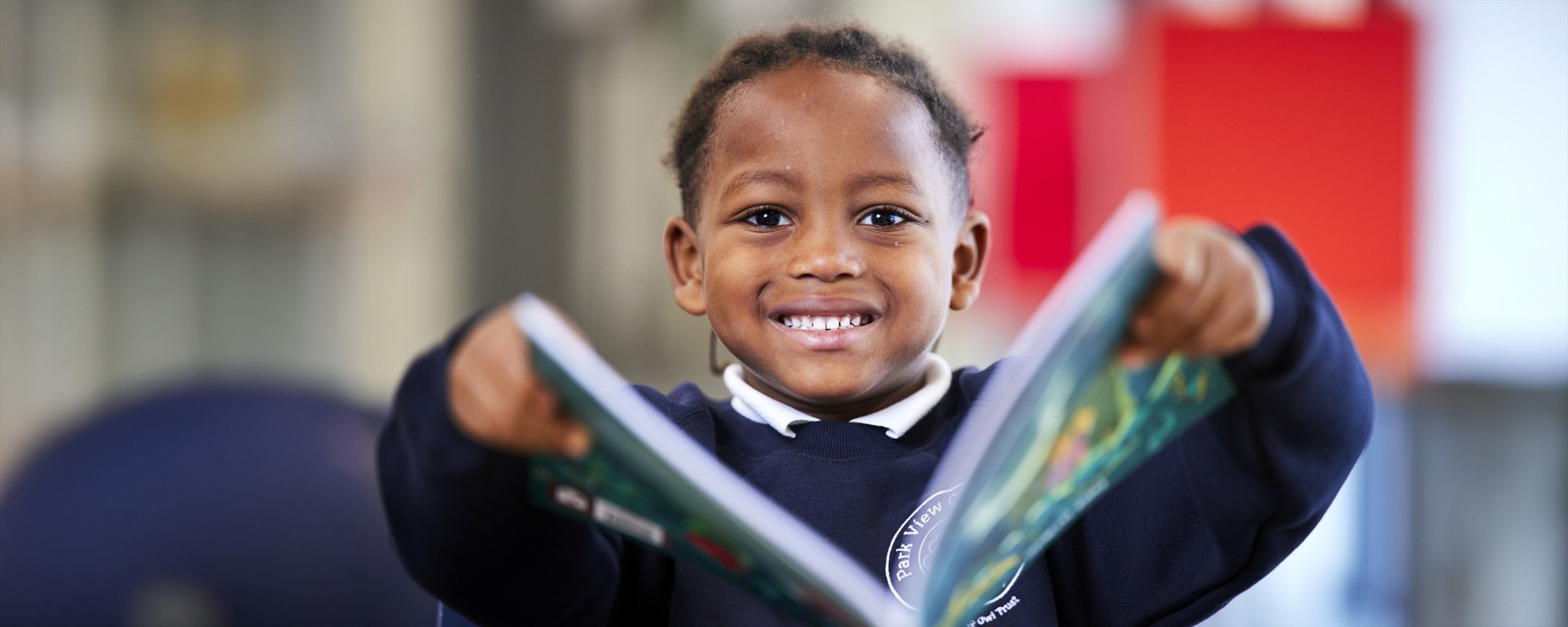
Reading curriculum
Reading Corner
Our reading curriculum approach
Phonics
Early reading is fundamental for building bright futures. We aspire for all of our pupils to become fluent, confident and passionate readers. At Park View Community Academy, we follow the Read Write Inc scheme — a systematic, robust approach to teaching phonics. Phonics is taught daily and we ensure complete fidelity to the scheme.
Whole Class Reading
From the spring term of Year 2, reading is taught through a whole class approach, enabling the teacher to work directly with the children on a daily basis, modelling the process of comprehending texts, scaffolding and supporting children allowing them to be able to confidently and independently apply their skills.
The books that we use have been subject to advisory panels for diversity, disability and LGBTQ+ within the selection process. The novels and other texts selected are demanding with pitching sitting in line with end of year expectations. Vocabulary is rich and varied and reading experiences which invest in cultural capital are frequent.
Fluency Teaching
Fluency is an incredibly important part of learning how to read well which cannot be overlooked. Being able to read fluently means more than just being able to read quickly. Fluency means ‘fluid’ and can be broken down into three skills which interlink.
The teaching of fluency is built into our reading curriculum throughout the year groups. Fluency is an aspect practised during phonics lessons and modelled during DEAR Time where teachers read to the class, ensuring their own reading is expressive and fluent. From Year 2, once our children have completed the Read Write Inc Programme, fluency is taught daily in all classes through activities such as repeated oral reading.
We assess our pupil’s fluency through the use of DIBELS assessments.
Vocabulary Teaching
Language acquisition is one of the biggest indicators of future success and therefore we both implicitly and explicitly teach vocabulary to our children.
Vocabulary in the Early Years
From the moment our children step foot inside our early years setting, they are immersed in language-rich environments. Thoughtfully designed learning spaces provide our children with necessary stimuli to develop language skills effectively. Our staff use every opportunity to use rich language and to interact with our pupils, modelling conversation and turn taking skills. Circle time and speaking and listening activities are planned in throughout the day. The children experience a range of nursery rhymes, songs and poems throughout their time in Early Years.
Our teachers also plan opportunities to explicitly teach new vocabulary and concepts to our children.
Beyond the Early Years
Children in our academy are taught new vocabulary directly using a consistent approach in every classroom. The vocabulary taught is known as ‘tier 2’ vocabulary — words which are of high value. These words are of high frequency in written text but not as frequently used in day to day conversation. To us, explicit vocabulary teaching is not a case of explaining the meaning of a word once and expecting children to remember it — we know the brain does not work this way. Instead, vocabulary is purposefully selected and pre-taught before making an appearance in lessons. These words are revisited regularly to ensure they make it into long term memory! We make use of etymology and morphology and spend time exploring words in detail.
One-to-One reading
All children in our academy are provided with books to take home and read with their families.
Reading schemes
If a child is accessing the phonics programme, they will take home a book that has been carefully matched to their phonics ability allowing them to practise and consolidate their learning at home.
Children who have surpassed the phonics scheme move on to the Oxford Reading Tree scheme. A broad range of books are offered to the children including: classic texts, myths and legends, novels by top children’s authors, poetry, graphic novels and plays, each suited to their reading ability.
By the end of Year 4, some of our most able pupils will have reached the end of the reading scheme. For these pupils, it is important to keep them interested and challenged. These children progress onto our ‘What Next?’ selection — a list of 75 fantastic books designed to engage, challenge and open their eyes to different works of fiction and non-fiction. Books such as The Hobbit by J R R Tolkien, Little Women by Louisa May Alcott and A Black Woman Did That! by Malaika Adero feature on the list.
It is expected that parents and carers support their children by listening to them read a minimum of 3x a week. Teachers check reading records weekly and use them for communication with parents about their child’s reading.
Reading for Pleasure
It is vital that our children are able to experience a wide range of books chosen by themselves. Alongside the scheme book, our children take home a book to enjoy with their families. This book is a free choice and not linked to a child’s reading ability. Some may choose a harder book for an adult to read to them, others an easier book to share with a younger sibling. It is the child’s choice! Right from nursery our children are encouraged to make their own choices about what book they would like to take home for pleasure. Our teachers help the children in making choices, guiding them towards books and authors they might enjoy.
We add to our Reading for Pleasure libraries each year to ensure they are up to date with the newest releases!
More from our Reading Corner
-

Reading pledge
We want children in our school to have a love for reading so intense they simply HAVE to pick up a book!
-

Currently reading
Here we share what we are reading in our classrooms at the moment.
-

Reading spine
Find out about the books central to our curriculum.
-

Library links
Get to know your local library, Miles Platting Community Library.



